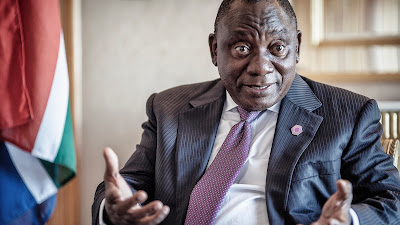As I was impressed with Mitch McConnell's apparent position in the days leading up to Donald Trump's Senate trial,* am I surprised, disappointed, devastated, at his decision yesterday to acquit?
Millions will be, and not just US Democrats. Ardent Trump supporters will be infuriated by McConnell's outright condemnation of the former president, at his damning words at the end of the trial that there was no doubt Trump was guilty as charged, a betrayal of their champion. McConnell showed he is one of the 'weak' Congressional members Trump had warned them about and mustered his cavalry against on January 6, a RINO, a traitor who will certainly not save himself by his hypocritical vote.
But there is more to consider here than the passion on both sides to fault Mr McConnell. Trump's trial can be looked at as a legal, moral, constitutional or political case. On the moral case, McConnell was unequivocal: Trump is a disgrace. On the legal case, he was clear Trump was still open to prosecution under the law, notwithstanding his acquittal by the Senate. Indeed, his final remarks seemed to be advocating that as the proper way to go.
McConnell then took the view that for the Senate, and each US Senator, impeachment demands the strictest constitutional duty. All were agreed to follow and safeguard the Constitution and, under the Constitution, impeachment is a political not legal process. No penalty, no punishment follows a verdict of guilty in the Senate. The House prosecution team had themselves pointed that out.
Still less, McConnell argued, is the Senate appointed moral guardian of 'the president, vice president and all civil officers of the United States' who alone may be impeached for 'Treason, Bribery, or other high Crimes and Misdemeanors'. The Constitution provides for those impeached to be removed from office and 'disqualified to hold and enjoy any Office of honor under the United States', but not in any other way judged. Donald Trump was already out of office, immune as a private citizen.
It seems a harsh limitation in face of the justifiable outrage at a democratic president's shocking conduct and the horrors of January 6 at the US Capitol. McConnell admitted it made it a very 'close' decision - his word - relying on a narrow interpretation of impeachment under the US Constitution. But how can it be inadmissible or 'wrong' as a Constitutional reading, or as an explanation for Mr McConnell's otherwise inexplicable vote?
Except that a nagging question remains, undoubtedly forever now. Was it an unalloyed decision, absolutely inescapable from the Constitution's written words? Or did the political case, the Republican case, in the end decide the matter?
*Mitch McConnell's Moment, January 13 2021







